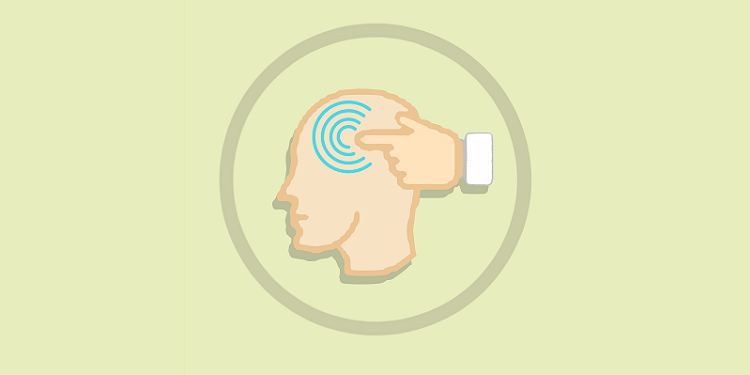Maintaining Brain Health & Function: What You Should Know

This is a guest post by Karen Cole, the Founder & Editor-in-Chief of online magazine HealthBenefitAdmin
The human brain is the “control center” of the body, and the the nervous system as a whole. The brain itself is comprised of a massive network of neurons and nerves, as well as the spinal cord. Together, everything from the various muscles in your body to your senses are controlled by the nervous system.
Any damage to the brain can inflict damage on a number of things such as your sensation, memory and even your personality. Environmental, genetic and lifestyle factors can have an impact on your cognitive health. Some of these impacts can end up affecting your ability of performing several everyday tasks like driving, cooking, taking medicine or paying bills and can even weaken your thinking skills.
While you have no control over the genetic factors that are passed down from parents to their children, but it is possible for you to change lifestyle and environmental factors to ensure proper brain health and function in the long term.
Below, we’ll explore some of the most notable factors that you do have control over.
Health Problems
There are a myriad of health problems that can have a direct impact on your brain and damage your cognitive function. High blood pressure and heart disease can cause a stroke and even change blood vessels enough to lead to dementia. Diabetes can increase the risk of Alzheimer’s because it damages the blood vessels all over the body, including the brain.
Due to Alzheimer’s, the brain suffers and you lose your thinking capabilities and face memory loss. You can also become a victim of concentration and attention problems because of depression. Therefore, these health problems need to be addressed right away to protect brain function.
Prescription Medications
Your thinking and brain function can also be affected by different medications and drugs, or combinations of them. In some people, certain drugs are known to cause hallucinations, confusion, memory loss, or delusion. Furthermore, some medications can also interact with dietary supplements, food, alcohol and numerous other substances and these interactions can alter brain performance.
You should always exercise caution when taking any of the following: muscle relaxants, antihistamines for allergies, sleep aids, sleep aids, medications for depression and anxiety, antipsychotics, urinary incontinence medications, and drugs for relieving cramps in the bladder, intestines, and stomach.
Brain Injuries
Blunt trauma is often responsible for brain injuries. Your brain tissue, nerves and neurons can be damaged due to brain injury, which can affect the ability of your brain in communicating with the rest of the body. Some common brain injuries include:
- Concussion
- Cerebral contusion (bruising of brain tissues)
- Intracranial hematoma
- Stroke
- Blood clots
- Cerebral edema (brain swelling)
Sleeping Problems
Getting a good night’s sleep is important at every age because this supports your brain health. It gives it time to rejuvenate and start fresh. You will suffer from memory loss, concentration problems and even notice a decline in other cognitive functions due to various sleep problems such as lack of sleep, sleeping disorders or sleeping poorly.
One sleep disorder is sleep apnea, which can lead to short pauses in breathing when a person is asleep. This can cause stroke, high blood pressure and even memory loss. You have to make lifestyle changes to avoid this disorder like quitting smoking, avoiding alcohol and losing weight. The doctor may also recommend a special device to use.
Porn Addiction
Watching porn every now and then is considered healthy because sex is also one of the basic functions of the body. Just like eating, sleeping and drinking, it is a need that needs to be fulfilled. With the internet, everyone now has easy access to different kinds of porn, which has led to addiction to pornography.
Research shows that people who become addicted have a smaller brain volume and their connections in the striatum, a region of the brain dealing with reward processing, are fewer. This is because when the brain becomes accustomed to viewing porn, it will find it less rewarding.
Apart from that, the addiction influences your short-term mentality as immediate payoffs become more desirable and it becomes a visual turnoff as well. Lots of health issues can develop as a result, both physical and mental — and, it also affects your sex life.
Alcohol Consumption
Your brain is affected when you drink too much alcohol because it impairs or slows down the communication between brain cells. Dizziness, drowsiness, slurred speech and memory loss are some of its consequences, which are usually short term, but there are some long term affects too.
For instance, there may be changes in memory, body temperature, coordination, emotions and balance. You can reverse some of these changes by avoiding alcohol or cutting down its consumption.
Additionally, regular alcohol consumption of alcohol can also lead to addiction, which is quite damaging in the long run as it weakens your senses and brain function by slowing down your reflections.
Diet & Exercise
Certain foods are known to promote brain health and most of us are aware of this fact. However, one thing that people don’t know is that there are also certain foods that can actually increase your health risk.
For instance, high-sodium and high-fat foods give rise to health problems like diabetes and heart issues, which as mentioned above, can lead to complications in brain health. Likewise, when you don’t exercise on a regular basis or participate in physical activity, you are more vulnerable to health problems like depression, stroke, diabetes etc., which can harm the brain.
Physical activity and exercise can improve your cognitive performance as a whole, and also reduce Alzheimer’s risk.
Loneliness & Social Isolation
Your brain health is going to suffer if you are lonely or in social isolation. Interactions with others are important for brain development and loneliness can actually increase the risk of dementia whereas lack of social activities is known to lead to poor cognitive function.



